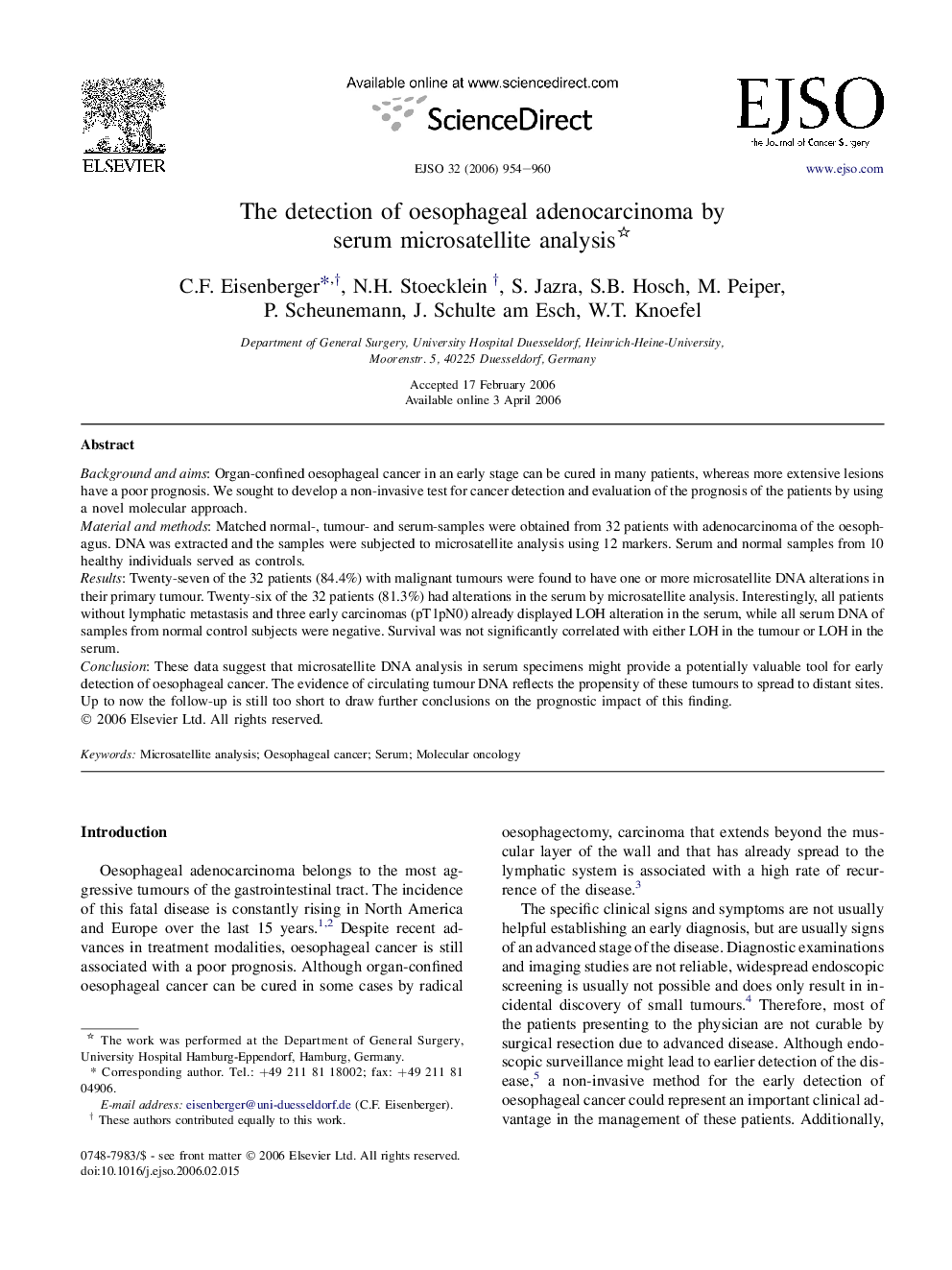| Article ID | Journal | Published Year | Pages | File Type |
|---|---|---|---|---|
| 3988139 | European Journal of Surgical Oncology (EJSO) | 2006 | 7 Pages |
Background and aimsOrgan-confined oesophageal cancer in an early stage can be cured in many patients, whereas more extensive lesions have a poor prognosis. We sought to develop a non-invasive test for cancer detection and evaluation of the prognosis of the patients by using a novel molecular approach.Material and methodsMatched normal-, tumour- and serum-samples were obtained from 32 patients with adenocarcinoma of the oesophagus. DNA was extracted and the samples were subjected to microsatellite analysis using 12 markers. Serum and normal samples from 10 healthy individuals served as controls.ResultsTwenty-seven of the 32 patients (84.4%) with malignant tumours were found to have one or more microsatellite DNA alterations in their primary tumour. Twenty-six of the 32 patients (81.3%) had alterations in the serum by microsatellite analysis. Interestingly, all patients without lymphatic metastasis and three early carcinomas (pT1pN0) already displayed LOH alteration in the serum, while all serum DNA of samples from normal control subjects were negative. Survival was not significantly correlated with either LOH in the tumour or LOH in the serum.ConclusionThese data suggest that microsatellite DNA analysis in serum specimens might provide a potentially valuable tool for early detection of oesophageal cancer. The evidence of circulating tumour DNA reflects the propensity of these tumours to spread to distant sites. Up to now the follow-up is still too short to draw further conclusions on the prognostic impact of this finding.
